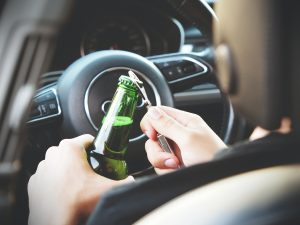In most cases, reckless or aggressive driving generates no significant benefits for drivers. It might shave five minutes off a commute or give a driver an inappropriate mental boost. Those questionable benefits aren’t worth the cost of an accident.
According to experts, installing a dash cam can help you prove innocence in a car accident. However, it doesn’t matter if you’re injured and suffer a long recovery or reduced physical abilities. Defensive driving is an important strategy, but you can’t always compensate for other people’s driving mistakes. So let’s talk today about the most common causes of car accidents!
Before we begin, let’s remind everyone that we all need a lawyer when we get into a car collision, in both fault and no-fault states. You should consult a car accident attorney after receiving a ticket or being involved in a vehicle crash. Regardless of the cause of your accident, your mind quickly returns to the real-world consequences of an accident – injuries, vehicle damage, and associated expenses.
Even if you think changing numbers and insurance info with the other driver will do, have an attorney close by for whatever might come next, from minor settlements to hidden injuries claims and compensation.
Five Most Common Causes of Vehicle Accidents
Many lists include some unusual causes of accidents, but it’s impossible to monitor every possible cause for defensive driving. The following list includes the most common causes that you can often observe in other drivers’ behavior.
1. Driver Distractions
According to natlawreview.com and other experts, driver distraction ranks at the top of the list. Drivers often get distracted or lose their attention because of electronic technology. Distractions consist of anything that draws your attention away from the road or the car or the traffic in general. For example, using mobile phones draws your hands away from the wheel and your mind away from driving. It only takes a moment of inattention to result in an accident, injury, and possible fatality.
Visual distractions include anything that draws your eyes away from the road. Motor distractions are things that take your hands away from the wheel, and cognitive distractions take your attention away from driving. Operating a phone to talk or text generates all three types of distraction.
2. Falling Asleep or Getting Drowsy
According to the same reports, experiencing fatigue, drowsiness, or literally falling asleep are major causes of vehicle accidents. Most Americans – about one-third – suffer from chronic sleep deprivation when working extra hours or taking care of young children. Many people claim they can get by on four hours of sleep, but they’re just fooling themselves. People need 7-8 hours of sleep daily for proper rejuvenation.
Driving while drowsy can be just as dangerous as driving drunk. The CDC reports that being awake for 18 hours results in similar impairment to those with 0.05 blood alcohol. Fatigued drivers suffer the same visual, motor, and cognitive impairment levels. Drivers can easily nod off behind the wheel, but that’s all it takes.
3. Driving Under the Influence of Drugs or Alcohol

According to an article posted at sciencedirect.com, drug and alcohol use remains underreported. Even without getting drunk or high, a casual cocktail combined with medication can render you unfit to drive. Law enforcement officers don’t have the tools or workforce to detect every person driving under the influence. Many people just ignore the evidence and media attention and have a drink or three before heading home. Those who take street drugs do so without considering that they become unfit to drive. Prescription medications and pain killers can be just as debilitating.
4. Speeding
Driving considerably faster than the speed problem ranks as an almost universal problem. When on the interstate, you’ll find most people driving five or 10 miles over the speed limit. People speed because they’re late for work or want to shave time off their commute. Speeding, however, routinely results in accidents and severe injuries.
The faster you drive, the less control you have over your vehicle. As a result, you have less time to react when something unexpected occurs. Therefore, keeping to the speed limit reduces gas consumption, increases reaction time, and avoids the possibility of getting an expensive ticket that raises your insurance rate premium.
5. Reckless or Aggressive Driving
Plenty of drivers deliberately flout the rules of the road. They swerve across multiple lanes, follow too closely for safety, accelerate abruptly, make illegal U-turns, jockey back and forth to gain position and even risk driving toward traffic. Speeding is just one aspect of reckless driving, and many drivers go more than 20 miles per hour over the limit.
In most cases, reckless or aggressive driving generates no significant benefits for drivers. It might shave five minutes off a commute or give a driver an inappropriate mental boost. Those questionable benefits aren’t worth the cost of an accident.


Join the conversation!